Vocabulary enhancement Easy Math Worksheets for Ages 4-7
9 filtered results
-
From - To
Educational growth is fun with our "Vocabulary Enhancement Easy Math Worksheets for Ages 4-7"! Designed for young learners, these engaging printables blend foundational math skills with essential vocabulary development. Children will enjoy activities that introduce new words and reinforce comprehension, making math learning an interactive adventure. The worksheets cover basic arithmetic, shapes, counting, and measurement, while simultaneously building critical language skills. Perfect for home or classroom use, these resources help foster a love for learning through play. Boost your child's confidence and educational foundation with our expertly crafted worksheets tailored for ages 4 to 7. Expand vocabulary while mastering math!


Faces of 3D Shapes Worksheet
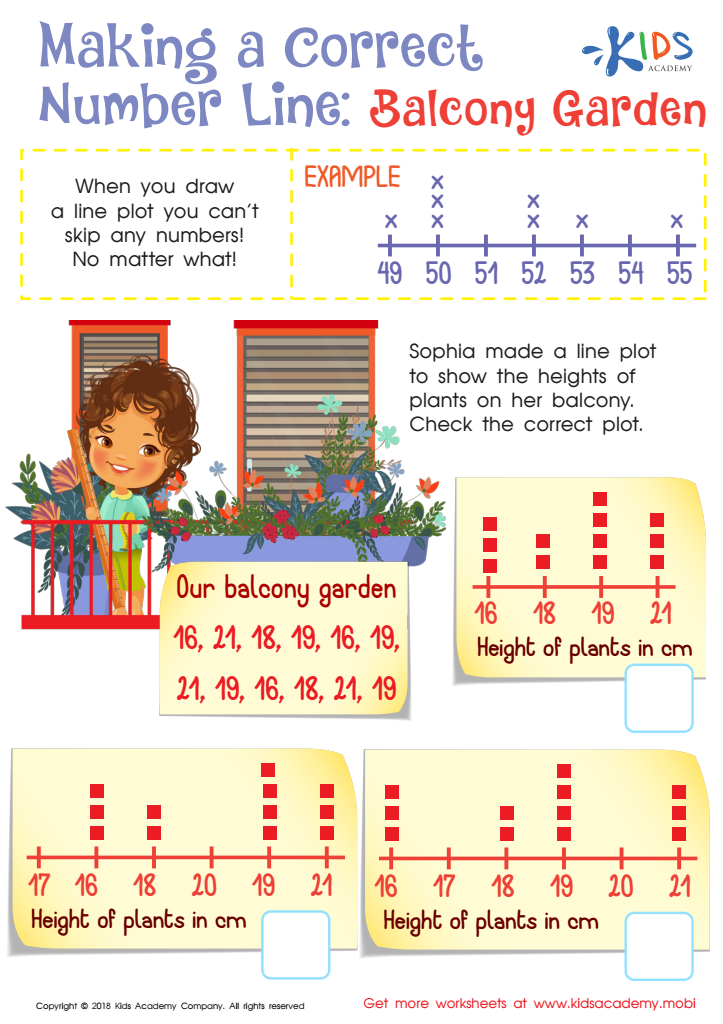

Making a Correct Number Line: Balcony Garden Worksheet
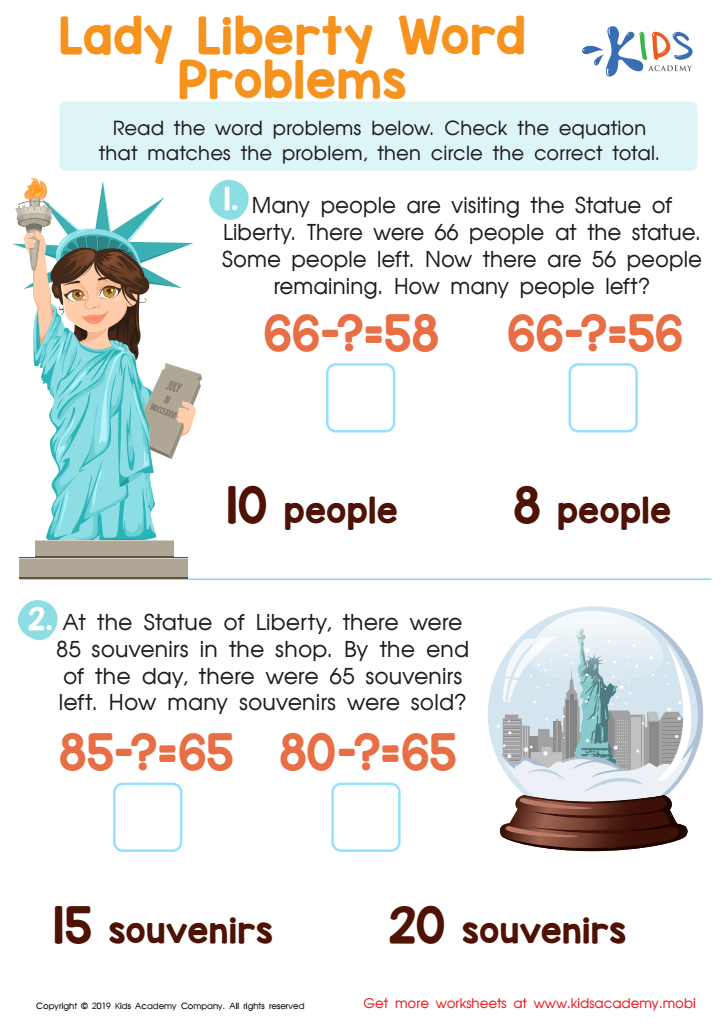

Lady Liberty Worksheet
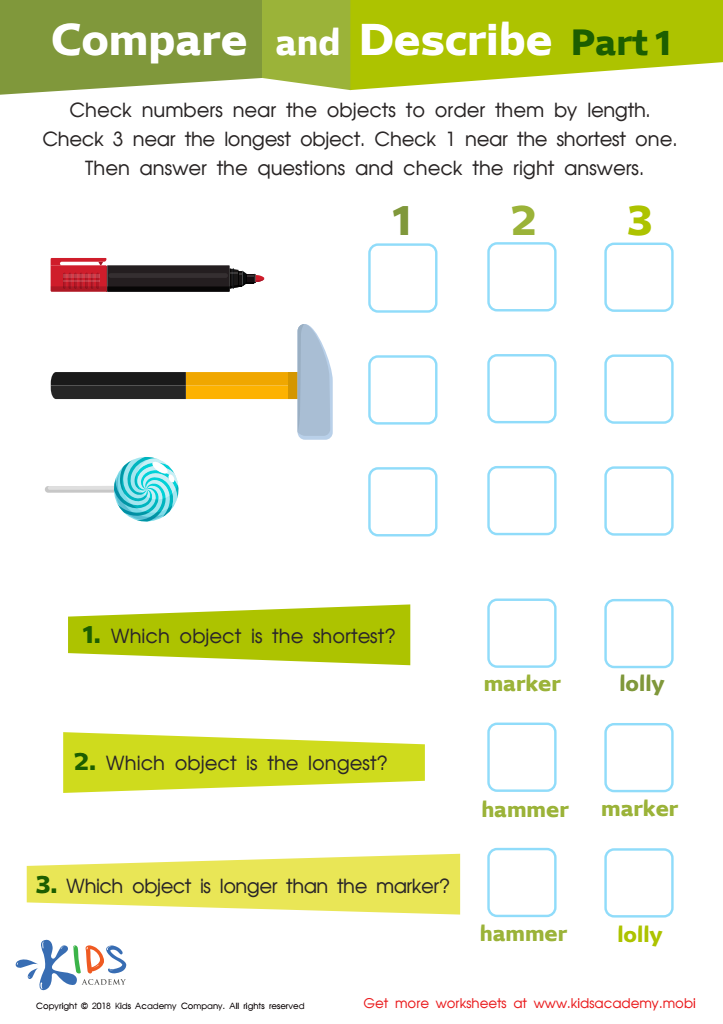

Compare and Describe: Part 1 Worksheet
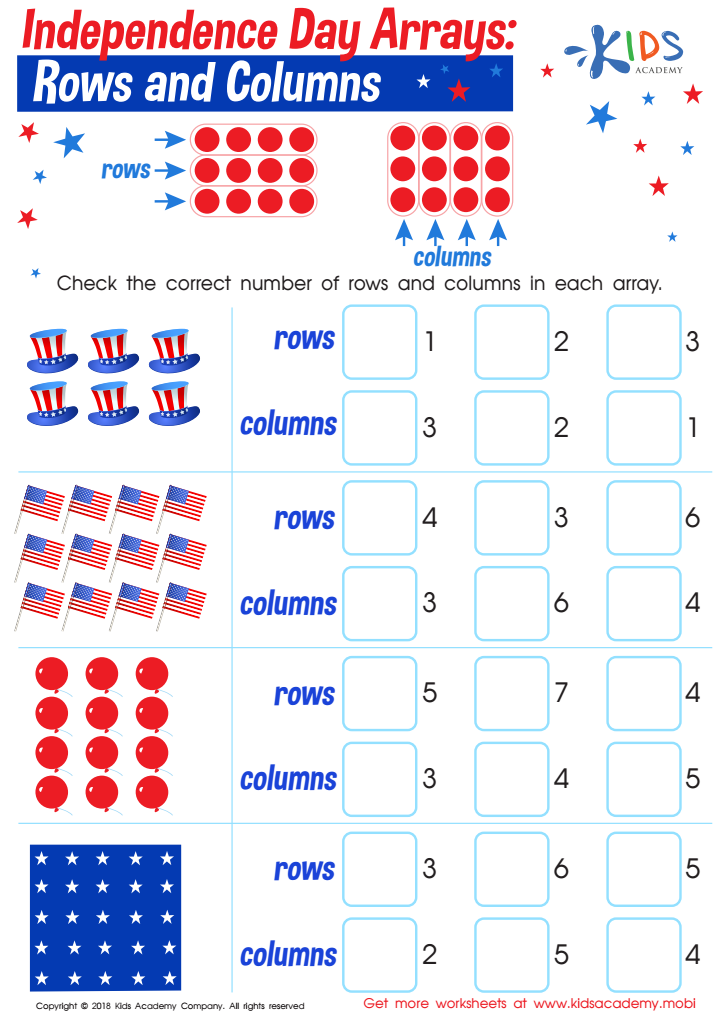

Independence Day Arrays: Rows and Columns Worksheet
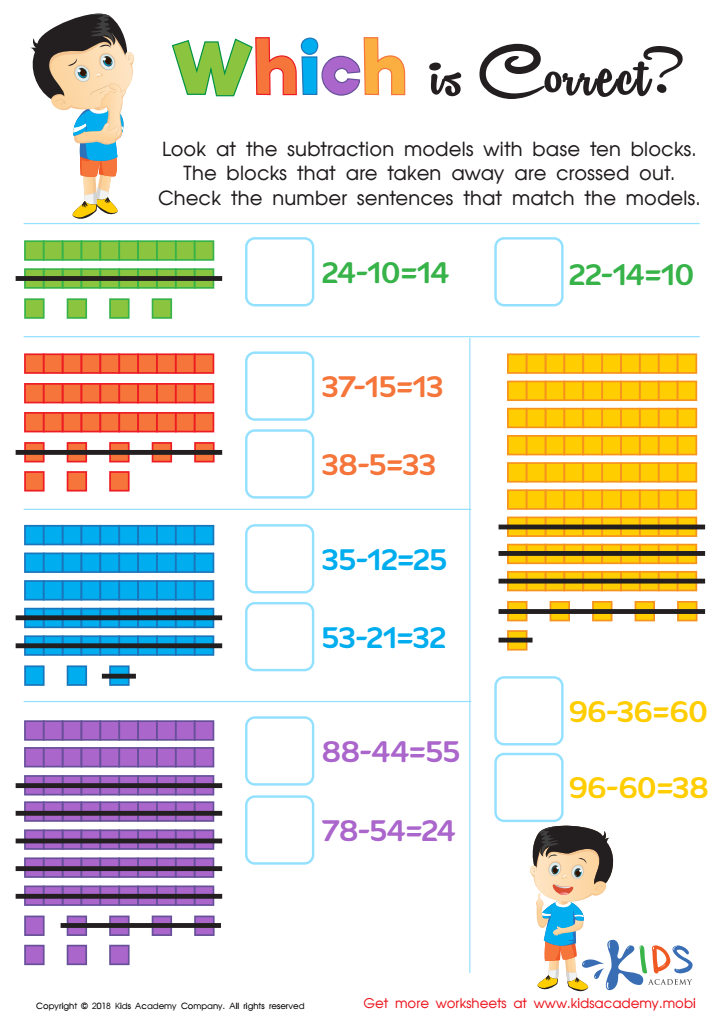

Which Is Correct? Math Worksheet
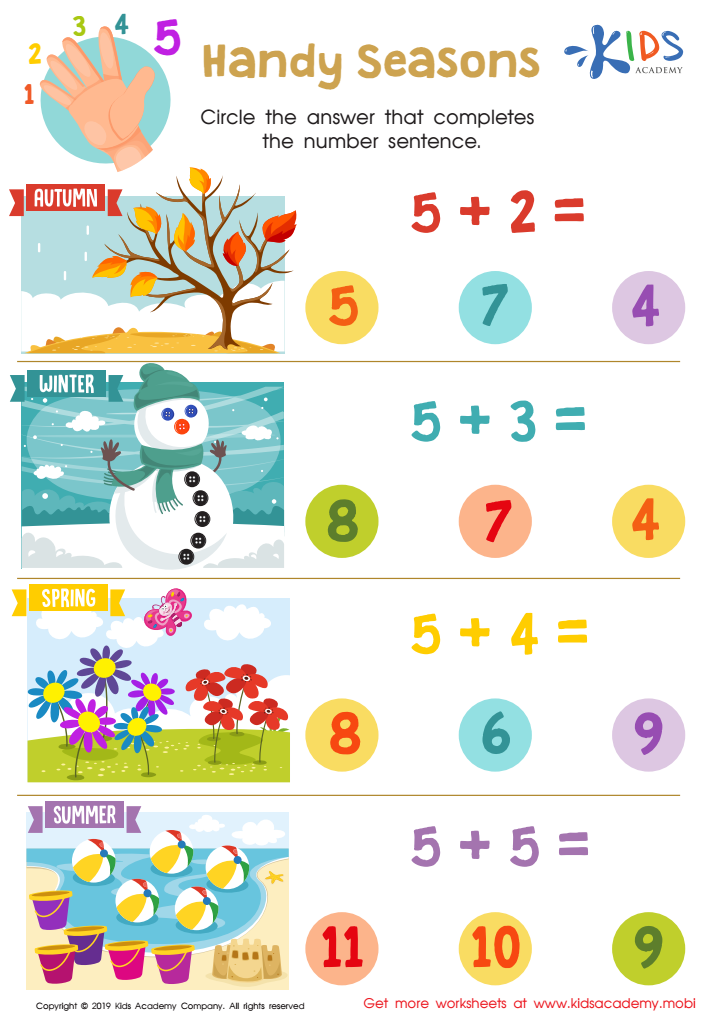

Handy Seasons Worksheet
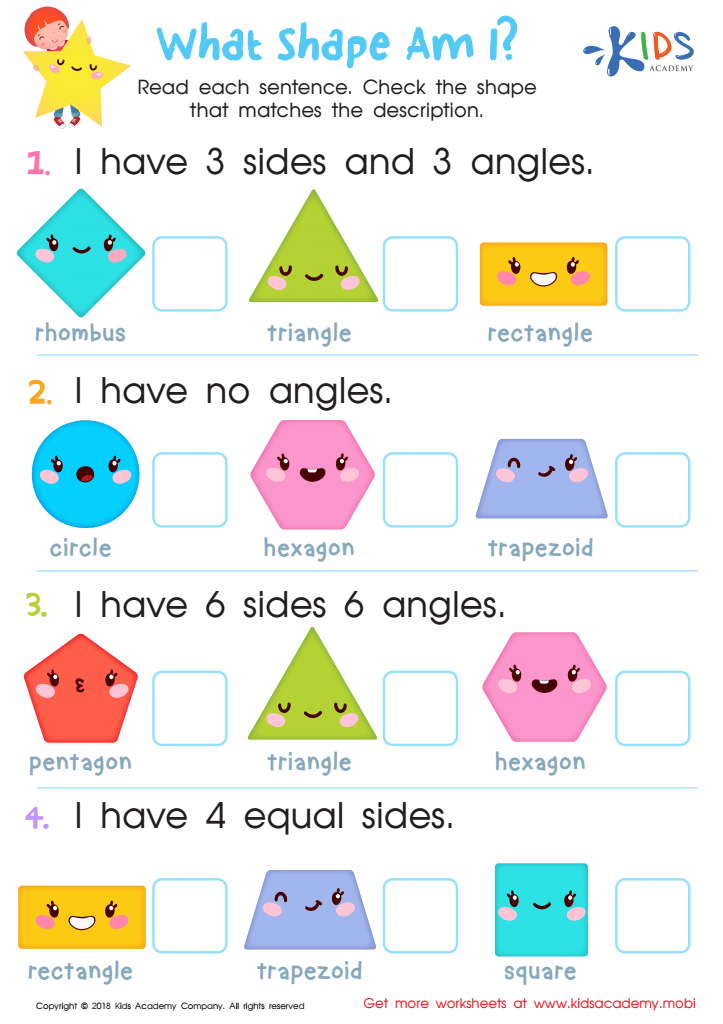

What Shape Am I? Worksheet
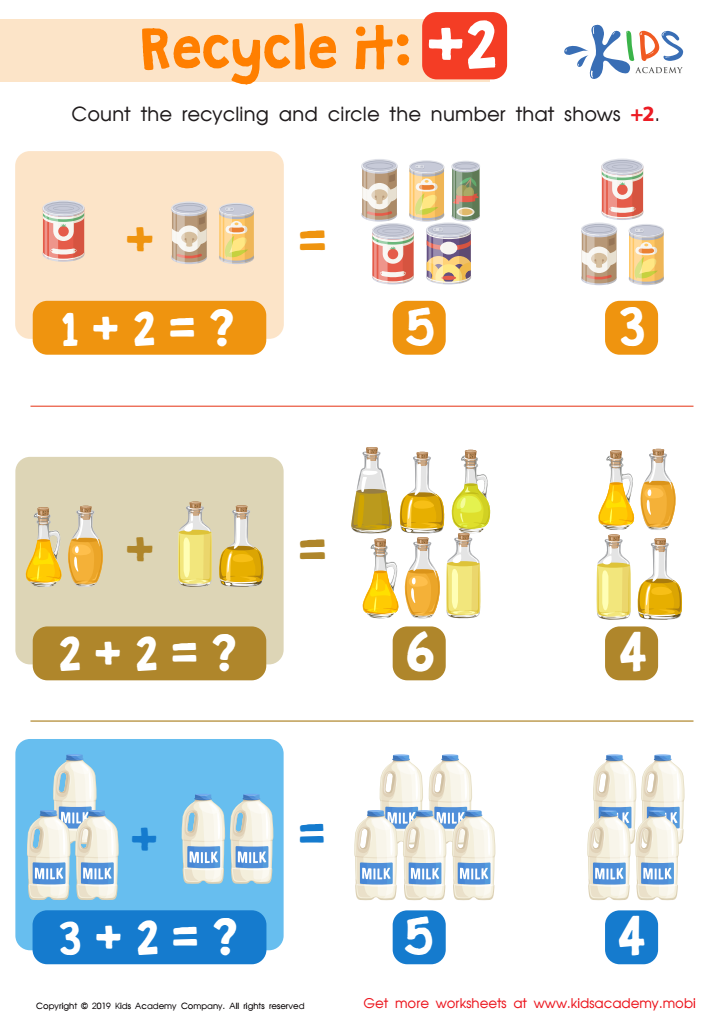

Recycle It: +2 Worksheet
Vocabulary enhancement and easy math skills form the foundation of a child's academic success, especially during the formative ages of 4-7. During this critical period, children's brains are highly receptive to learning new words and concepts. Enhancing their vocabulary helps them develop better communication skills, improves their reading comprehension, and fosters a love for learning. A strong vocabulary allows children to express their thoughts and understand the world around them more effectively, creating a ripple effect that benefits all areas of their education.
On the other hand, mastering basic math skills is equally crucial at this stage. Math teaches children logical thinking, problem-solving, and the ability to make connections between abstract concepts and real-world applications. For young learners, easy math practices such as counting, sorting, and recognizing patterns set the stage for more complex mathematical concepts later on. These skills are not only essential for academic purposes but are also valuable in everyday tasks, boosting a child’s confidence and independence.
Integrating vocabulary enhancement and easy math into early education equips children with the tools they need for future success. Parents and teachers who prioritize these areas contribute to developing well-rounded, confident, and capable individuals ready to tackle future learning challenges.
 Assign to My Students
Assign to My Students





















